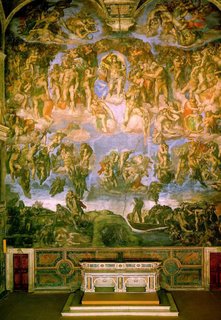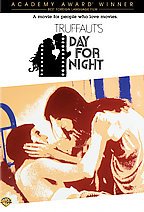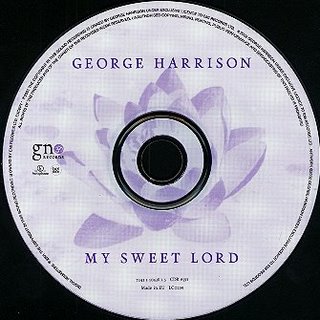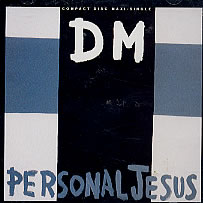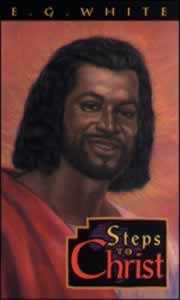 "Do not let your hearts be troubled. Trust in God; trust also in me [Jesus Christ.]" [Trust also in the Holy Spirit.]* John 14:1 (NIV)
"Do not let your hearts be troubled. Trust in God; trust also in me [Jesus Christ.]" [Trust also in the Holy Spirit.]* John 14:1 (NIV)“One would expect, therefore, that nothing would be more familiar to every Christian than the reality of the Spirit. But to the contrary, there is almost no other subject in modern theology so difficult to deal with as the doctrine of the Holy Spirit." 5
All our lives it was drilled into us that the unpardonable sin was grieving away the Spirit of God. Several approaches result from such a fear. One lives in a constant state of anxiety worried that too much sinning, or lack of devotion, or some incomplete knowledge of salvation might lead to the unpardonable sin.
Another result is fear of any type of emotional response to the Holy Spirit's work during evangelistic or worship services lest that heightened sense of emotion lead to a false speaking in tongues, which would automatically be labeled "not the work of the Holy Spirit."
Still another result is to have so much respect and awe and, yes, fear, that one thinks it best not to dwell on the subject of the Holy Spirit too often, or to speak of Him as little as possible, so as not offend, and therefore "sin against the Holy Spirit."
Perhaps there are other possibilities, but these will suffice to lead to the real reality of the Holy Spirit and His importance in our lives.
During one of the Sabbaths earlier this year when the church was studying the subject of the Holy Spirit, we asked the class if they thought it was proper to pray directly to the Holy Spirit and to worship Him directly? The question was shocking to most of those present. One woman even said that to worship and pray directly to the Holy Spirit was to make an idol of the Holy Spirit. We responded that it was impossible to do so, since being God Himself, one could not make an idol of Him by both worshipping and praying to Him directly. The rest of the class then concurred that what was accepable was to worship all three members of the Godhead equally and simulaneously, but not separately, if memory serves me. Regarding praying directly to the Spirit, all concurred that one had to pray to God the Father, in the name of Jesus, and through the Spirit.
Since "God is Spirit" and the Spirit is both the "Spirit of God" and the "Spirit of Jesus" would you not be worshipping and praying to the Godhead by worshipping and praying to the Holy Spirit directly? Being Spirit in its Quintessence, are not all members of the Godhead embodied in the Divine Spirit? When we pray, love, worship and meditate on the Holy Spirit, are we not concurrently doing all these devotions to God the Father and God the Son? Do you think the first and second persons of the Godhead mind that you pray to the Spirit in this, the final age of man, the Dispensation of the Holy Spirit? How much more holiness, love and power would there be if the Spirit were constantly being invoked, praised, honored, talked about, and loved?
In the church hymnal there are very, very few songs exclusively devoted to the Holy Spirit. Of the few there are, only one was familiar to me from all the songs I've ever heard sung in an Adventist Church. That song was one made popular in the 70s by the Heritage Family with words that said, "There's a sweet, sweet Spirit in this place. And I know that it's the Spirit of the Lord." Since the Spirit is our mainline to God and our only hope of getting with God and staying with God, why are there so few songs in the Hymnal? And why are those songs sung so infrequently? Is it because if they are sung the members will get too emotional and former members who "spoke in tongues" will get the urge to do so during Sabbath morning services?
I once witnessed two former pentecostal members of my Spanish congregation in the early 70s briefly get emotional during Wednesday night prayer meetings. One woman knelt with all others during a special altar call and directly addressed Christ with language so poetic and powerful that she stood out among your usual and "orthodox" prayer meeting devotee. The others didn't follow her example, but something very unusual was happening. So much so, that the miniser with a smile of awe that I've rarely seen in an adventist church, said, "Let's keep calm, because the Holy Spirit is defintely visiting us at this moment, right here right now." It almost seemd that by his fascination with what he and all present were witnessing, that he had seldom been at such occurrences within the Adventist church. It is one of the most singular memories I have of Adventism, the Holy Spirit, and a minister's cautious counsel.
We as a church have not paid enough attention to the Holy Spirit, his reality, his ministry, his person, his beauty, his friendliness, his promise. It is a real shame that, instead of being known as those folk who focus on the sanctuary, 1844, the investigative judgment, and the prophecies of Daniel, we're not known as the "Church of the Holy Spirit." Were that the case, we'd have the tools and the power to fight post-modernism, secularism, apostasy, worldliness, bickering, contentiousness, selfishness, sensuality, smugness, pride, a superiority complex caused by an obession with our being the Remnant Church of the Last Days, unChristlikeness, and just plain insensitivity to those inside and outside of the church who are hurting, lonely and in need of a helping hand.
May God have mercy on us and help us to think more about, pray more to and love Him more. I'm speaking of the Spirit of God, the Spirit of Christ, in a word, our Saviour, our God and our Friend, the Holy Spirit.
* It seems appropriate now to complete Christ's command to believe in all persons of the Godhead in this well-known verse. Jesus could not very well have included instructions to trust also in the Holy Spirit at the time He said these words since the outpouring of the Holy Spirit had not yet occurred.
